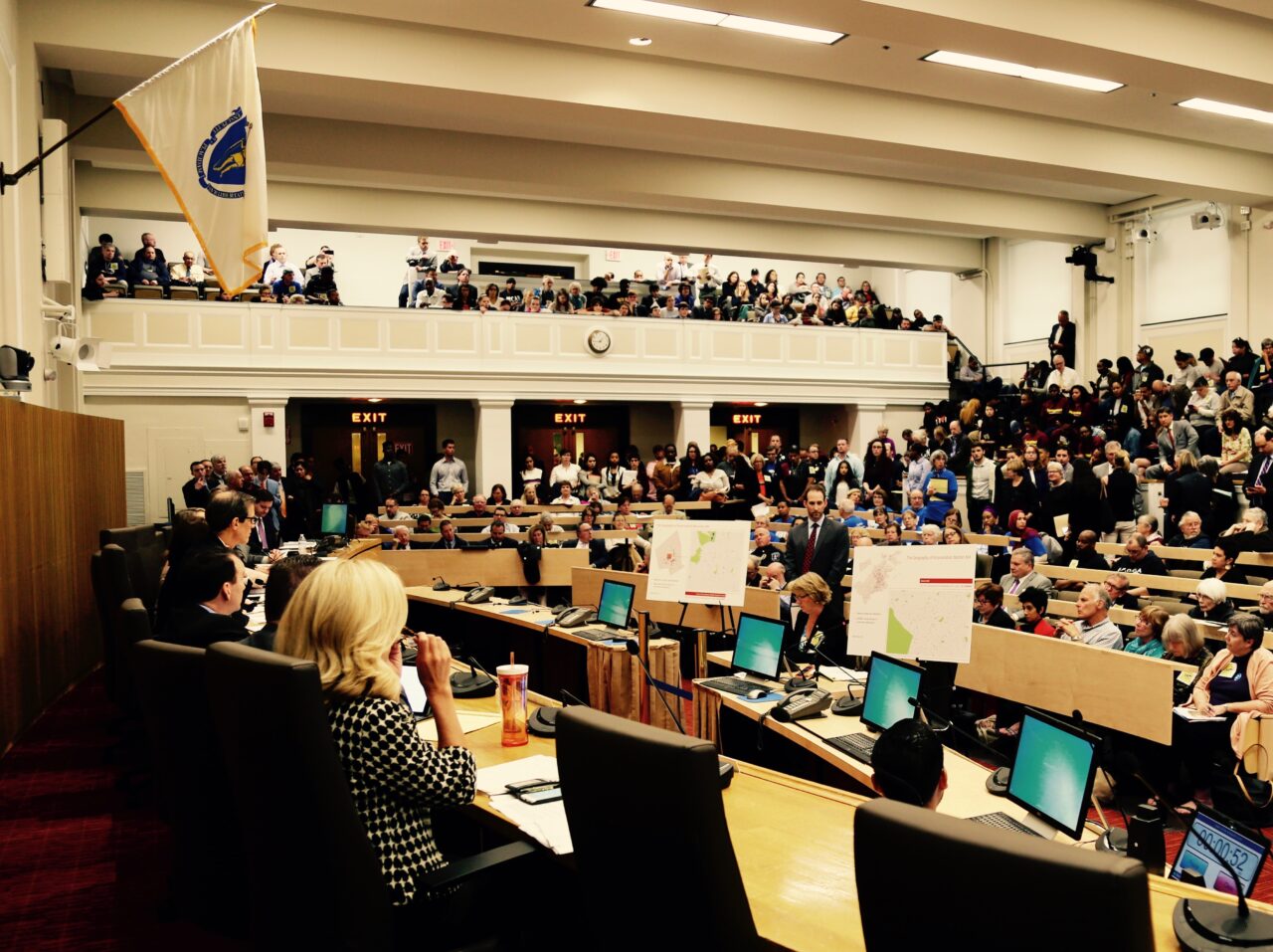
The Senate and House sent a sweeping criminal justice reform bill to Governor Charlie Baker’s desk this week. The Governor has not said how he will proceed. Details matter, and there are a lot of them to parse, but the overall thrust of the bill is very much in keeping with what voters have said they want to see from the criminal justice system, according to polls we conducted in 2014 and 2017.
Those polls found a strong desire to shift the aim of the criminal justice system away from punishing crime and more towards preventing it in the first place, in part by rehabilitating offenders so they do not reoffend. Apparently driving some of the opinion is the perception of prison as harmful rather than helpful. Voters say prison leaves inmates more likely to commit future crimes (53 percent) rather than less likely (27 percent).
In terms of sentencing, few prefer mandatory minimum sentencing (8 percent), opting instead for partial (46 percent) or total judicial discretion (41 percent). They support treating drug abuse as a health issue (66 percent) rather than a crime (24 percent) and providing programs for inmates to help them re-enter society. They favor specific changes that were included in the bill, including raising the threshold amount for felony larceny (60 percent) and reducing the period of time before offenders can petition to have their criminal records sealed from employers. On some matters, voters might support going even farther than the legislation does. Voters might like to see mandatory minimums done away with altogether, rather than just for a handful of low-level drug offenses. The bill imposes new mandatory minimums for dealing the powerful synthetic opioids that have fueled the addiction crisis in the Commonwealth. Nonetheless, the reaction from advocates and their proponents in the legislature suggests there is far more for reform-minded voters to like than dislike in the current package. What concessions were made seem to have placated the state’s District Attorneys, who had earlier expressed opposition to parts of the bill.
On some matters, voters might support going even farther than the legislation does. Voters might like to see mandatory minimums done away with altogether, rather than just for a handful of low-level drug offenses. The bill imposes new mandatory minimums for dealing the powerful synthetic opioids that have fueled the addiction crisis in the Commonwealth. Nonetheless, the reaction from advocates and their proponents in the legislature suggests there is far more for reform-minded voters to like than dislike in the current package. What concessions were made seem to have placated the state’s District Attorneys, who had earlier expressed opposition to parts of the bill.
While the legislators, district attorneys, advocates, and voters in the state appear to be supportive of the new policies, Governor Baker said yesterday that he is still waiting for feedback from various departments of his administration. The final deal has been public since March 23 and cannot be further amended by either chamber. Baker can choose to veto, sign the entire bill, or send the bill back with amendments. Democrats control both houses with veto-proof supermajorities, and fully control what makes it into law on this and every other issue.
Baker had previously supported a more modest reform package that grew out of a Council of State Governments review of the state’s criminal justice system. Reform advocates argued that approach was too narrowly focused and pushed for the more expansive package. The final bill goes further than many expected, which gives Baker more to review.
The polling suggests voters would largely agree with the broader approach. Public opinion on criminal justice has come a long way since the tough-on-crime era of the 1980s and 90s. With this bill, policy looks to be catching up.
MPG ICYMI
Steve has a new commentary up on WBUR about the federal tax law and how its lack of popularity could hurt Republicans running for Congress here in Massachusetts.
We’re proud to release a new poll of Boston voters conducted for the Hyams Foundation that takes a comprehensive look at policy priorities for people of color in Boston. Hyams is hosting a community conversation to discuss the findings next week.
Former State Senator Ben Downing is back on The Horse Race this week to discuss what on earth is happening in the State Senate. Matt Szafranski of Western Massachusetts Politics & Insight checks in to discuss the primary challenge to Former Senate President Stan Rosenberg and the west’s waning political clout.
Last week, Pam Wilmot of Common Cause Massachusetts walked us through Automatic Voter Registration, Shira Schoenberg of MassLive and the Springfield Republican gave an update on the criminal justice reform bill, and Steve and Lauren broke down impending decisions on three possible ballot questions.
THE CROSSTABS
FiveThirtyEight has President Trump’s job approval at 40 percent, disapproval at 53 percent. Its generic ballot has Democrats up 8 points (47-39).
A new HuffPost poll out this morning finds that health care — an issue neither party is talking much about — is top of mind for voters. Guns and immigration are the second and third.
With Mark Zuckerberg set to testify before Congress, a Pew report finds about half of Americans don’t trust social media or the government to keep their personal information safe.
The same report notes that in 2014, surveys found that 91 percent of Americans thought people had lost control over how personal information is collected and used.
A new POLITICO/Morning Consult poll shows support for gun control is still high, with 66 supporting stricter gun laws.
